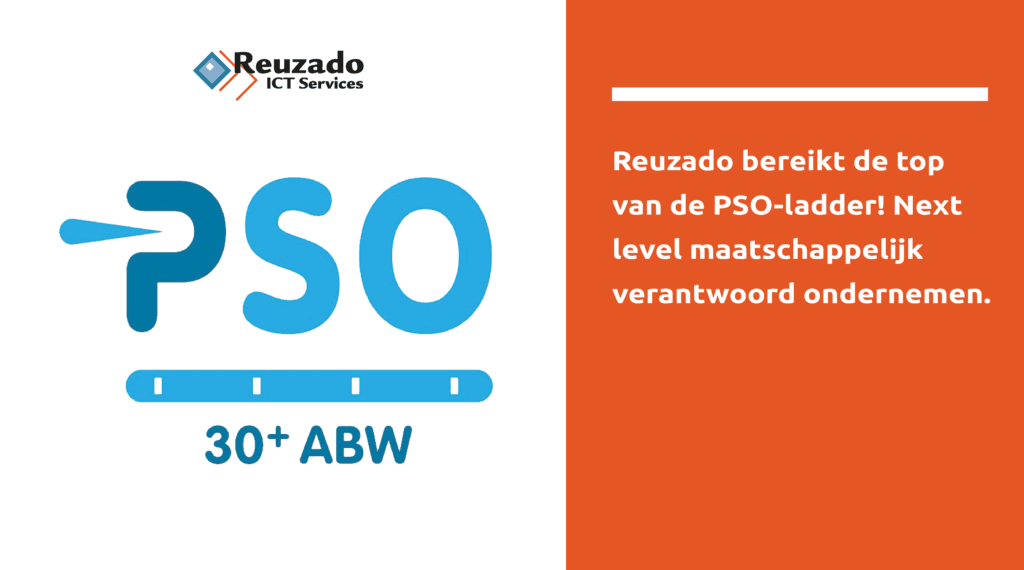Social Entrepreneurship: In Reuzado’s DNA Since 2004 — Now PSO 30+ Certified
From the very founding of Reuzado 20 years ago—long before Corporate Social Responsibility became a hot topic on political agendas—we have been aware of the importance of broad labor participation. For years, Reuzado has facilitated sustainable and high-quality workplaces for individuals with a vulnerable position in the labor market. We also have long-standing partnerships with regional sheltered employment organizations such as Paswerk and Pasmatch.
This focus is now also recognized and supported by the Dutch government. Companies that can demonstrate their contribution to a more inclusive society receive an official certification: the PSO quality mark.
PSO stands for Prestatieladder Socialer Ondernemen (Performance Ladder for Social Entrepreneurship). It is a scientifically grounded quality label developed by TNO, measuring the extent to which organizations practice inclusive and social entrepreneurship. There are five levels (from aspirant to Step 3 – 30+), focused on the labor participation of vulnerable groups in the job market.Recently, an official auditor conducted an independent assessment of Reuzado’s current PSO level. This audit not only looks at the percentage of employees with a distance to the labor market (direct social contribution), but also applies qualitative criteria: how carefully an organization manages its workforce, and how its indirect social contribution is structured.We’re proud to announce that Reuzado has achieved the highest possible certification: PSO 30+, following a previous Step 3 rating. At the same time, we believe this should be the standard in business. Equal opportunity for a stable job—inclusive employment—should be the norm. That’s why we also consciously choose to procure products and services from sheltered workplaces and other PSO-certified organizations.
Direct and Indirect Social Contributions
PSO Netherlands maps the ratio between the number of employees with a distance to the labor market and the total number of employees within an organization. The percentage of employees with a vulnerable labor market position working at an organization is referred to as the direct social contribution.There is also what’s called an indirect social contribution. This represents the percentage of goods or services purchased from PSO-certified organizations and sheltered workplaces, converted into the number of FTEs from the PSO target group involved in delivering that portion of the turnover.This indirect social contribution helps trigger what is known as chain stimulation: an incentive for the entire supply chain to engage in more socially responsible business practices, as organizations begin requiring PSO certification from one another.
The percentages of direct and indirect social contributions are added together to form the total social contribution. The degree of socially responsible entrepreneurship is determined by comparing this percentage with the PSO standards.These PSO standards are based on nationally representative data from the biennial Employer Labour Survey (WEA) conducted by TNO. The PSO standard then determines the classification into the so-called PSO performance levels. *
PSO 30+ Certification
The PSO 30+ Certificate was developed as an additional qualification within the highest PSO performance level (step 3). This certificate recognizes organizations that at least meet the quantitative requirements set out in Article 2.82 of the Dutch Public Procurement Act. That article allows (semi-)public contracting authorities to reserve contracts for enterprises that specifically focus on the labor participation of vulnerable groups.
*source: pso-nederland.nl

